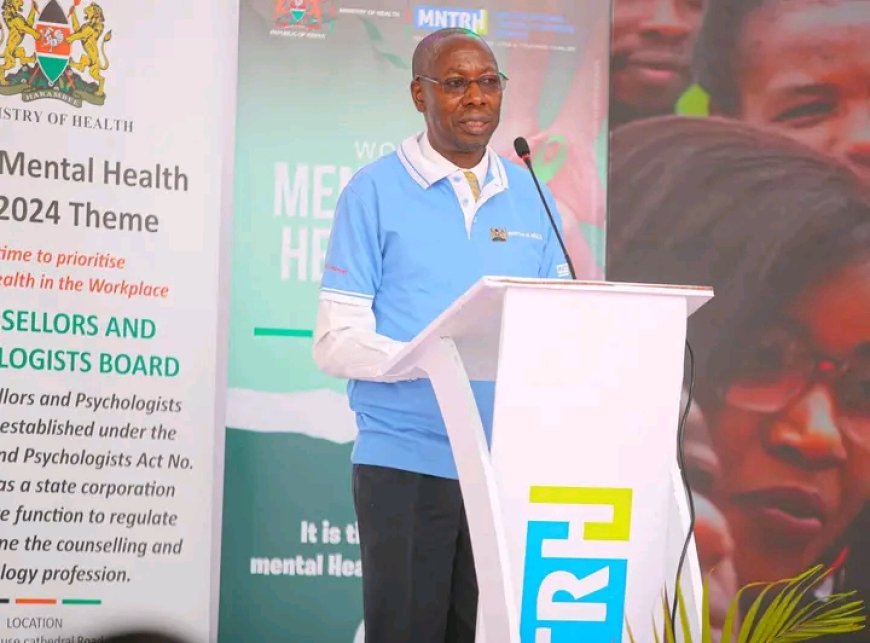MOH calls for prioritization of Mental health at Work places

Nairobi,
Thursday, 10 October, 2024
McCreadie Andias
Health CS Dr. Deborah Mlongo Barasa has emphasized on the need to prioritize mental health in workplaces as the world today marks the Mental Health Day
Kenya marked the event at Mathari Teaching and Referral Hospital.
Under this year's themes “Time to Prioritize Mental Health in the Workplace,” Dr. Barasa noted that approximately 3.7 million workers in Kenya may be affected by mental health disorders, leading to a 0.6% loss of the nation’s GDP in 2020 due to reduced productivity.
In response to these challenges, the CS said the Ministry of Health has introduced Kenya’s first National Guidelines on Workplace Mental Wellness.
These guidelines aim to promote mental well-being and establish effective support systems for employees experiencing mental health issues.
Dr. Barasa called for collective action, urging investments in mental health clinics in Level 4 hospitals, the implementation of these guidelines by employers, and the integration of mental wellness programs into school curricula.
Additionally, she launched the Mathari National Teaching and Referral Hospital Strategic Plan 2024-2029, which focuses on improving the quality of mental healthcare and fostering institutional growth.
World Mental Health Day is set aside for global mental health education, awareness and advocacy against social stigma.
It was first celebrated in 1992 at the initiative of the World Federation for Mental Health, a global mental health organization with members and contacts in more than 150 countries.
This day, each October, thousands of supporters come to celebrate this annual awareness program to bring attention to mental illness and its major effects on people's lives worldwide.
In addition, this day provides an opportunity for mental health professionals to discuss and shed light on their work, making mental health a priority worldwide.
Decent work is good for mental health. Poor working environments – including discrimination and inequality, excessive workloads, low job control and job insecurity, pose a risk to mental health.
Accounting to the WHO, an estimated 12 billion working days are lost every year globally, due to depression and anxiety at a cost of US$ 1 trillion per year in lost productivity.
All workers have the right to a safe and healthy environment at work. Work can also protect mental health.
Decent work supports good mental health by providing:a livelihood;a sense of confidence, purpose and achievement;
an opportunity for positive relationships and inclusion in a community; and a platform for structured routines, among many other benefits.
For people with mental health conditions, decent work can contribute to recovery and inclusion, improve confidence and social functioning.
Safe and healthy working environments are not only a fundamental right but are also more likely to minimize tension and conflicts at work and improve staff retention, work performance and productivity.
Conversely, a lack of effective structures and support at work, especially for those living with mental health conditions, can affect a person’s ability to enjoy their work and do their job well; it can undermine people’s attendance at work and even stop people getting a job in the first place.
What's Your Reaction?



































































































































































































































































































